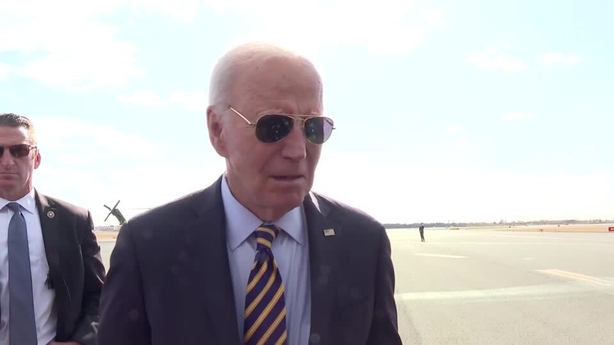Israel's airstrikes "hit hard" Iran's defences and missile production, Prime Minister Benjamin Netanyahu said, as Iranian Supreme Leader Ayatollah Ali Khamenei said the country was considering its response.
With warfare raging in Gaza and Lebanon, direct confrontation between Israel and Iran risks spiralling into a regional conflagration.
But a day after the airstrikes, there was no sign they would spark another round of escalation.
Iran's official IRNA news agency cited the country's Supreme Leader Ayatollah Ali Khamenei as saying that Iranian officials should determine how best to demonstrate Iran's power to Israel after the Israeli attack on Iran two nights ago,
"The evil committed by the Zionist regime (Israel) two nights ago should neither be downplayed nor exaggerated", IRNA cited Mr Khamenei as saying.
The UN Security Council will likely convene to discuss the attack tomorrow, diplomats said.
Iran yesterday played down Israel's overnight air attack against Iranian military targets, saying it caused only limited damage, as US President Joe Biden called for a halt to escalation that has raised fears of an all-out conflagration in the Middle East.
Scores of Israeli jets completed three waves of strikes before dawn against missile factories and other sites near Tehran and in western Iran, Israel's military said.
Mr Khamenei said Iran's power should be demonstrated to Israel, adding that the way to do so should be "determined by the officials and that which is in the best interest of the people and the country should take place".
The strikes were retaliation for Iran's 1 October attack on Israel with about 200 ballistic missiles, and Israel warned its heavily armed arch-foe not to hit back after the latest strike.
Iran condemned the Israeli raid and its foreign ministry said Iran was "entitled and obligated" to defend itself.
But it added that it "recognises its responsibilities towards regional peace and security," a more conciliatory statement than after previous bouts of escalation.
Iran's military said the Israeli warplanes used "very light warheads" to target border radar systems in the provinces of Islam, Khuzestan and around Tehran.
"Enemy planes were prevented from entering the country's airspace ... and the attack caused limited damage," Iran's military joint staff said in a statement.

Tensions between Iran and Israel have grown rapidly since the 7 October 2023, attack on Israel by Iran-backed Hamas, raising fears of a wider regional conflict that could drag in global powers and imperil world energy supplies.
Read more: Latest Middle East stories
Worsening conflict in Lebanon, where Israel is waging an intense campaign against Iran's main regional ally Hezbollah to stop it firing rockets into northern Israel, has raised the temperature still further.
The United States, which had pressed Israel to avoid targeting sensitive Iranian energy and nuclear sites, joined other countries in calling for a halt to the cycle of confrontation between Israel and Iran.
Israeli Prime Minister Benjamin Netanyahu said that Israel had chosen the targets in Iran based on its national interests, not according to what was dictated by the United States.
Mr Biden said the strikes appeared to have only hit military targets and added that he hoped they were "the end".
US Vice President Kamala Harris, who hopes to succeed Biden by winning the 5 November US presidential election, said it was "the strong perspective of the United States that there must be de-escalation."
'Message to Iran'
Videos carried by Iranian media showed air defences continuously firing at apparently incoming projectiles in central Tehran, without saying which sites were coming under attack.
Israel's military said its jets had struck missile manufacturing facilities and surface-to-air missile arrays, and safely returned home.
"If the regime in Iran were to make the mistake of beginning a new round of escalation, we will be obligated to respond," the military said.
US Defence Secretary Lloyd Austin, in a statement, said Iran "should not make the mistake of responding to Israel's strikes."
Mr Austin said he also stressed in a call with his Israeli counterpart diplomatic opportunities to lower tensions in the region, including in Gaza and Lebanon.
In the days after Iran's strikes on Israel this month, Mr Biden had warned that the US, Israel's main backer and supplier of arms, would not support a retaliatory strike on Iran's nuclear sites and had said Israel should consider alternatives to attacking Iran's oil fields.
Arab states situated between Israel and Iran have been particularly worried that use of their airspace could prompt retaliation against them.

